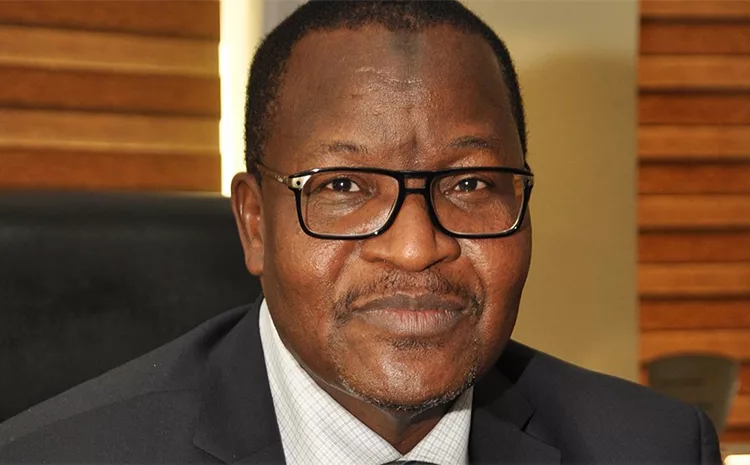As the Nigerian Communications Commission (NCC) prepares for the auction of the second batch of 3.5GHz spectrum for Fifth Generation (5G) mobile technology, there is growing recognition of the transformative potential of 5G in improving the lives of Nigerians. Studies suggest that the benefits of 5G are immense, and its rollout promises to significantly enhance the quality of life across various sectors of the economy.
Speaking at a stakeholder forum in Lagos, the Executive Vice Chairman (EVC) of the NCC, Prof. Umaru Garba Danbatta, emphasized the importance of the 5G auction in advancing digital services and building a robust communication infrastructure that benefits all Nigerians. He underscored the Commission’s vision to equip the nation with cutting-edge technologies, positioning 5G as a key enabler of economic growth and national development.
“The primary goal of the Federal Government is to enhance the quality of life for Nigerians through improved access to high-speed Internet services. This will increase productivity, efficiency, and drive growth across various sectors,” said Danbatta. He also highlighted the NCC’s proactive regulatory approach in transitioning Nigeria through 1G, 2G, 3G, 4G, and now to 5G, a journey that has already catalyzed remarkable socio-economic developments.
The upcoming 5G auction will offer two lots of 100 MHz TDD spectrum in the 3.5 GHz band, totaling 200 MHz, with a reserve price of $273.6 million per lot. This auction is expected to pave the way for 5G services that will have profound impacts on Nigeria’s economy, connectivity, and digital ecosystem.
What 5G Brings to the Table
5G technology is set to revolutionize mobile connectivity, offering speed, efficiency, and reliability far beyond what 4G networks can provide. Early deployments of 5G in developed nations have shown dramatic improvements in broadband services, real-time communication, and data transfer speeds, especially for upstream traffic.
5G offers a tenfold increase in user experience throughput, connection density, and network efficiency, alongside a significant reduction in latency. These advancements will enable seamless video streaming, faster mobile gaming experiences, and support innovations like self-driving cars and smarter cities. Moreover, 5G supports real-time communication across massive networks of connected devices, fueling the Internet of Things (IoT).
Engr. Rufai Mohammed, Chief Technology Officer at MTN Nigeria, explained that 5G brings three key advantages: faster speeds, lower latency, and higher connection density. “With 5G, we can connect more people within a given area, alleviating the congestion issues that 4G networks face,” he said. Mohammed also emphasized 5G’s role in expanding IoT, allowing not just people but devices to connect seamlessly, paving the way for smarter homes, businesses, and cities.
Key Use Cases for 5G
The enhanced capabilities of 5G—faster speeds, greater bandwidth, and reduced latency—hold transformative potential across multiple industries, from healthcare and education to agriculture and manufacturing. The global 5G services market is expected to reach $664.75 billion by 2028, with significant growth in areas like mobile gaming, connected vehicles, and smart city development.
According to Ericsson, 5G is enabling new services such as e-health, autonomous vehicles, and advanced mobile cloud gaming. These innovations are improving the day-to-day experiences of users while also transforming industries globally. The growth of the 5G market presents exciting opportunities for Nigerian businesses and consumers to benefit from these emerging technologies.
5G is also expected to empower businesses by allowing them to automate operations, run critical processes remotely, and increase operational efficiency. With better security and performance, 5G will support a range of industries, from smart cities and healthcare to agriculture and energy management.
5G’s Impact on Everyday Life
The possibilities for 5G to enhance the everyday lives of Nigerians are endless. The technology promises better internet connectivity in rural and urban areas, allowing for faster access to educational content, healthcare services, and financial tools. It will also improve the way Nigerians work and socialize, offering faster access to streaming services, gaming, and social media platforms.
In a future powered by 5G, Nigerians will experience smarter homes and cities where everything is interconnected. For example, imagine returning home from a long day of work to a house where your air conditioner, lights, and water heater have been pre-set for you, all based on data from your smart wristband that tracks your stress level and health. These interconnected devices, made possible by 5G, will make life more convenient, efficient, and comfortable.
Adia Sowho, Chief Marketing Officer at MTN Nigeria, summarized the transformative potential of 5G: “Every major technological evolution redefines what’s possible. 5G will change how we connect, create, collaborate, and compete in ways we’ve yet to imagine.” The full benefits of 5G will unfold over time, but Nigerians can already look forward to a future where the technology elevates their daily lives and powers the nation’s digital economy.
In conclusion, as the NCC moves forward with the 5G auction, Nigeria is on the cusp of a technological revolution that promises to enhance connectivity, boost economic growth, and improve the quality of life for millions of Nigerians across various sectors.




